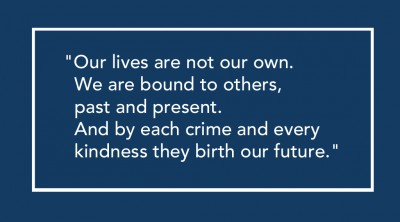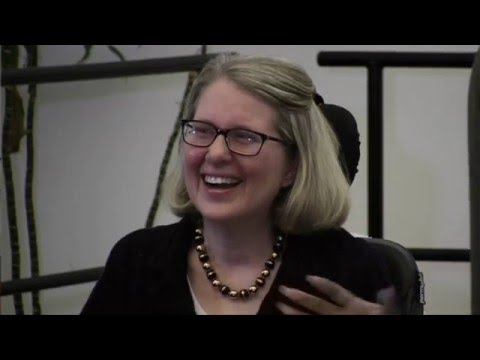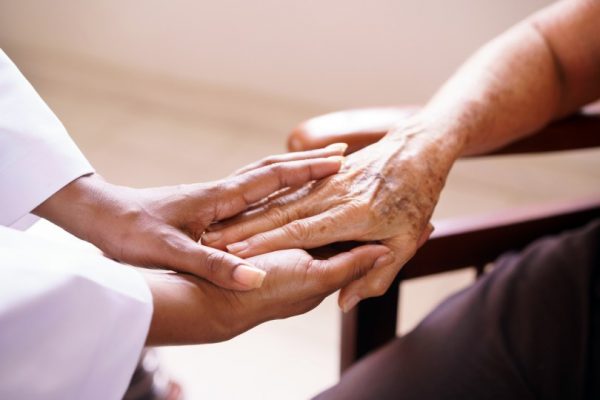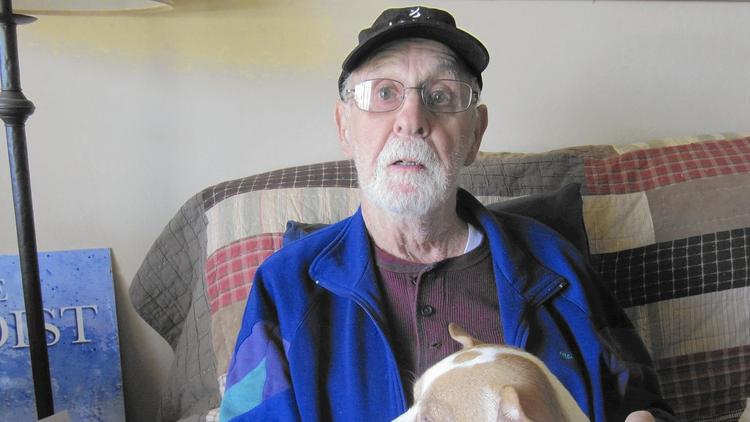Dear Gov. Brown:
Three years ago, my father died in a fairly typical manner. His heart and his body had given out, he could barely move, he couldn’t feed himself and he was in diapers.
He was in a bit of pain, but the physical suffering was nothing compared to the emotional and psychological side of things. His life was gone and there was no joy in a day. He had no privacy and he hated having to be cared for as he lay in bed helplessly, a witness to his own lingering death, which finally arrived as a friend might, delivering the gift of mercy.
Maybe I’m not as brave as my father, but I knew then that I do not want to die that way and wouldn’t want my loved ones to experience the misery of watching me slowly dissolve.
So what will I do? I don’t know. I wouldn’t be one to put a gun to my head, as some do. Maybe I’d stop eating and drinking water, but that can be a pretty miserable way to go too.
Gov. Brown, I don’t know if you read about this in my column, but I died once. Just after a knee operation, I went into cardiac arrest and flat-lined. That wouldn’t be a bad way to go, actually. No long, drawn-out affair. No messy stuff. But I was resuscitated, and I’m alive and well for the time being, and I’m asking you to give dying Californians the right to depart on their own terms.
No one seems to know what you will do with the End of Life Option Act that’s in your hands and would give us the same freedom people have in Oregon, Washington and elsewhere.
I know that our democracy is based on a separation of church and state, and that leaders such as you try not to let the tenets of their faith assert undue influence on secular decisions. I know too, however, that our values are usually set early and that religious beliefs are often core to who we are.
So it seems reasonable to note that the Catholic Church opposes what critics call assisted suicide and supporters call aid in dying, yet polls suggest most Catholics — as well as most Californians — want the option of going through a series of steps to get a life-ending prescription from a physician.
I know, governor, that you got a little farther than I did in the Catholic Church. You were a seminarian and I topped out at altar boy.
I don’t know if you still identify as a Catholic, but to me, any religion is about a search for meaning and we all know you’re a thoughtful — even spiritual — man who reflects, quotes Scripture and works from a set of basic moral principles.
So I wanted to share some conversations I’ve had with religious people who came to support aid in dying in the context of their experience and training.
“As a Christian I believe God is love,” the Rev. Ignacio Castuera once told me. “…And the God of love would not want any of God’s creatures to suffer undignified situations, especially at the end of life.”
Castuera grew up Catholic and is now a United Methodist Minister in Pomona. He told me about his ministry in West Hollywood during the AIDS epidemic, and he spoke of the honor of being with those who found a way to purchase life-ending medications and face death bravely with loved ones present.
“Death,” Castuera said, “is not the final stage for humans.” It is, in his mind, a deliverance to God.
The Rev. Sergio Camacho, a Methodist minister in Montclair, shares that view.
“Over the years, I’ve seen so many people dying, from brain tumors and other diseases,” he said. “It’s unbelievable how they suffer.… Before they go, they curse their families, they curse themselves, they curse God. It’s horrible, and God doesn’t want that. He wants us to go in peace. We need to think about this with merciful hearts.”
Dr. Robert Olvera, a Catholic physician and former altar boy who grew up in East Los Angeles, has supported aid in dying since watching his daughter die, at 24, from the leukemia she lived with for 17 years. She was blinded by her disease, he said, painkillers offered no relief and she suffered greatly.
“She was basically living in a black hole,” he said. “She had no quality of life.”
She was wasting away, her face was sunken, she did not want to be seen by anyone and she was in that state for the final three months of a life that ended last year.
“She begged me to give her some sleeping pills,” said Olvera, who couldn’t answer that request, knowing he could be criminally charged and lose his license to practice medicine.
Doctors can and do offer palliative sedation, but Olvera believes they should also have the right to grant a terminal patient’s wish to die at the time of their choosing, provided they are of sound mind and have satisfied the safeguards against abuse or coercion that are written into the end-of-life legislation.
I asked Olvera how he would respond to the argument that the timing of death is not something patients and doctors should decide; that should be left in God’s hands.
Doctors, he said, can unplug ventilators and they can answer a patient’s wish to be taken off dialysis. They can recognize that modern medicine has advanced to the point where people can be kept alive almost indefinitely, but all of us must ask whether, in some cases, we are extending life or prolonging death.
As both a physician and a Catholic, Olvera said, he believes no one should have to experience what his daughter did.
I understand that your education was Jesuit, Gov. Brown.
Well, Dan Maguire studied in Rome, became a Jesuit priest and now teaches moral theology at Marquette University, a Jesuit school. Here’s what he told me:
“For almost 50 years a number of Catholic theologians have taught that for the terminally ill, ending life may, at times, be the best that life offers. In some circumstances, death may be the best remaining friend and it is reasonable and moral to accelerate the dying process.”
According to Scripture, Maguire told me, we are made in the image and likeness of God, and it is our God-given right to decide for ourselves on matters such as aid in dying.
“Thomas Aquinas says with great wisdom that human actions are good or bad depending on the circumstances,” Maguire said. “In certain cases, you could say that life is good, and always to be served as best you can, but there are times when the ending of life is the best that life offers, and moral beings can make that decision for themselves…. That’s what human freedom means.”
It’s true, Gov. Brown, that some fear the life-ending option will be abused, and that those who are disabled or in a state of depression will choose inappropriately or be manipulated by relatives who stand to benefit financially.
It’s true, as well, that we need to be mindful of the potentially dangerous intersection of end-of-life options and cost-cutting by health insurance companies that have a financial disincentive in costly end-of-life procedures going on for long.
But I believe the legislation before you offers safeguards against abuses.
I don’t know if my father — who refused a feeding tube before his life came to a close — would have taken advantage of the End of Life Option Act, had it been available at the time.
I’m certain many people — probably most people — would want no part of it. That’s their choice and they should be entitled to the finest palliative care.
But I know that since writing about his death, I have heard from hundreds of Californians who would take a small measure of comfort in knowing that if they so choose, they can avoid physical or emotional suffering as the inevitable end nears. They believe that, as Dan Maguire put it, there comes a time when death is a friend.
I stand with them.
Complete Article HERE!
A gift Americans owe to themselves and their country in 2013 is lessons on how to die.
 Doctors know this. They don’t spend their final hours like the other 2.4 million Americans who die every year. They’ve seen patients hooked up to tubes in hospital beds, suffering unnecessary pain and indignity, while tens of thousands of dollars are spent on every medical option to extend lives that are clearly near the end. According to a Johns Hopkins study, most doctors have advance care directives, reject CPR and live their final days with dignity, at home and in hospice, surrounded by loved ones.
Doctors know this. They don’t spend their final hours like the other 2.4 million Americans who die every year. They’ve seen patients hooked up to tubes in hospital beds, suffering unnecessary pain and indignity, while tens of thousands of dollars are spent on every medical option to extend lives that are clearly near the end. According to a Johns Hopkins study, most doctors have advance care directives, reject CPR and live their final days with dignity, at home and in hospice, surrounded by loved ones.
The Mercury News’ Lisa M. Krieger has spent the past year grappling with our approach to death in America. Her insightful, heartfelt series, “Cost of Dying,” concludes Sunday with a practical analysis of how to change end-of-life medicine. She encourages us to take charge of our own deaths, tell doctors what we want, reject treatments that we really know can’t help and — this is most important — consider suffering, not death, the enemy. Expanding access to hospice care is a key to all this.
Pain can be managed very well today. Most Americans could die in peace at home. But nearly 80 percent die in hospitals or nursing homes, even though surveys show these are the last places the vast majority wants to be. About 20 percent die connected to tubes in intensive care units, the least humane and most expensive end of life care.
We need a culture change in our approach to death. We need to focus more on dying with dignity and less on extending life to the last possible minute. This will be better for individuals, and it will be better for America: Our health care costs are killing our economy, and pointless end-of-life care is a big part of the reason.
This country spends nearly twice as much per capita on health care as any of its competitors in world markets, but by most measures, it achieves poorer results than European counterparts. A major reason is that the 5 percent of Medicare patients who die every year consume almost one-third of all Medicare expenditures. And one-third of those costs are incurred in the final month of life, when there is no chance of a real recovery.
The number of Americans 65 and older will double in the next 20 years, putting more pressure on our medical system. People understandably worry that treatments that could benefit them may be less accessible, but the enormous amount of money paid to extend suffering at the end of life benefits no one.
Today 75 percent of Americans could die comfortably at home with hospice care. But we have to make that choice personally, talk frankly with doctors and family — and work to change family and community attitudes.
All we need is the will.
Complete Article HERE!







